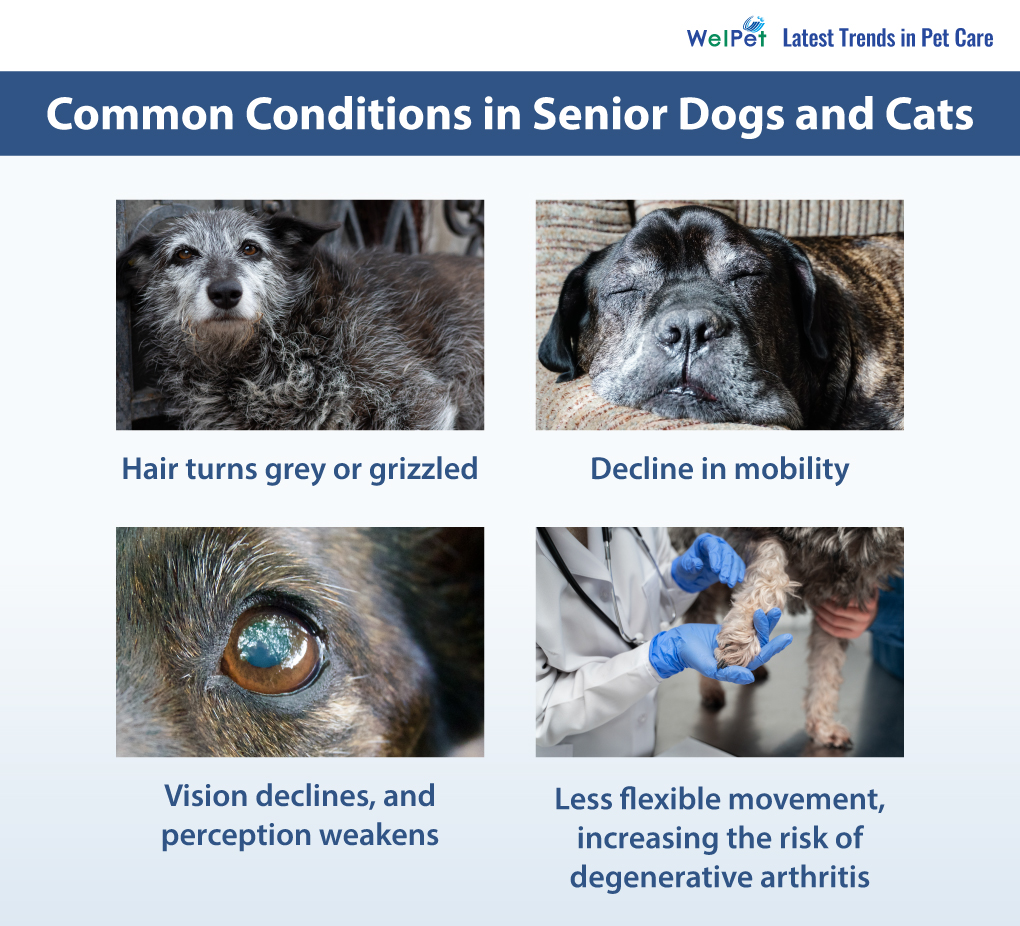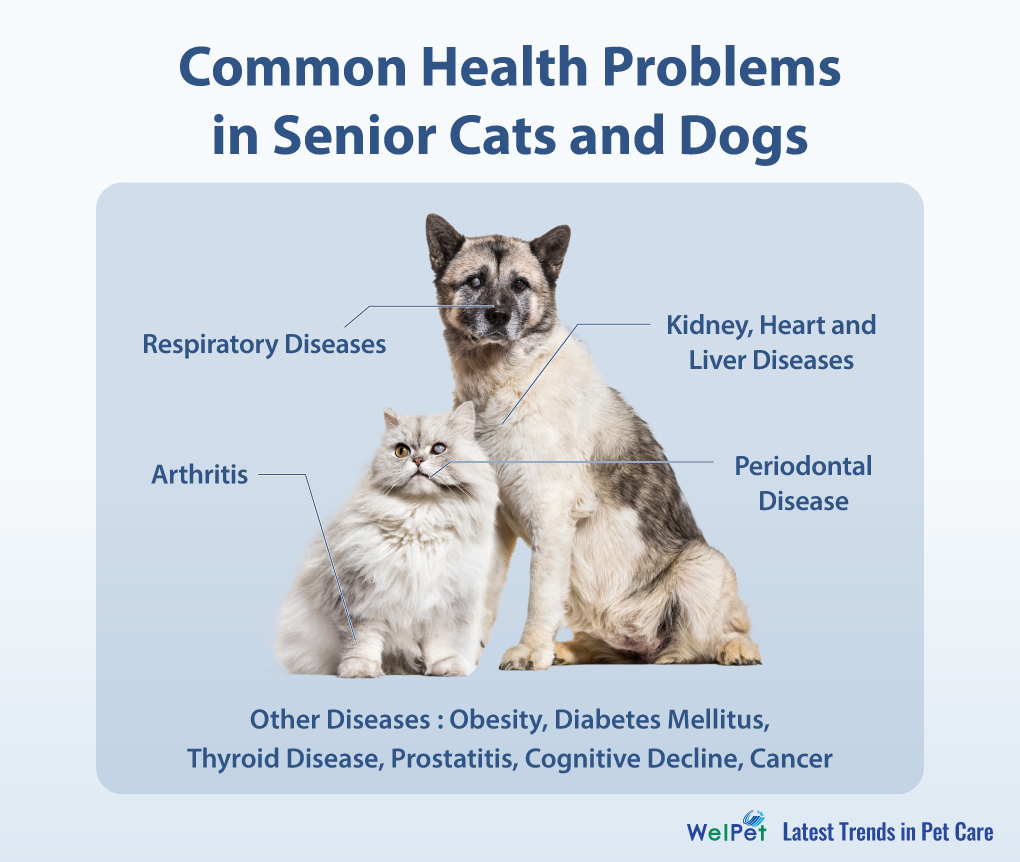At What Age Are Dogs and Cats Considered Senior? Care and Nutrition Tips for Aging Pets
As medical technology advances, the lifespan of pets continues to lengthen, leading to an increase in the number of senior pets.
But how old is considered senior for dogs and cats? How can we provide proper nutritional supplements and healthcare for aging pets?
Today, we will explore how to give senior dogs and cats the best nutrition and care to ensure a healthy and happy later life!
1. Understanding the Age and Lifespan of Senior Pets
The definition of "senior" varies depending on the breed and size of the pet. For example, small dogs like Maltese enter their senior years around age 9, while large breeds like Golden Retrievers typically become seniors at age 7. Cats' senior phase is similar to that of small dogs, usually starting at around 9 years of age.
Apart from age, pet owners can also observe their pets' behavior and physical condition to determine if they have entered their senior years. Common signs include reduced activity, increased sleep time, and changes in appetite.

2. Health Challenges for Senior Pets
As pets age, they may face health issues such as tumors, kidney disease, arthritis, or neurological degeneration. Reduced immunity also makes them more susceptible to infections.

3. The Golden Rules of Nutrition and Health Management
With aging comes the gradual decline of the body, making nutritional supplementation and health management critical. The following three strategies can help improve the quality of life for senior pets:
1. Dietary Management to Provide Essential Nutrients
- Low-Phosphorus Diet: Helps protect kidney function.
- High-Fiber Diet: Promotes gut health and reduces constipation.
- High-Quality Protein: Maintains healthy muscles and body condition.
- Easily Chewable Food: Ideal for pets with dental issues, ensuring they can eat comfortably.
2. Supplements Beyond Diet
- Basic Senior Care: Vitamins E and C help reduce free radical damage and slow aging.
- Oral and Digestive Health: Ingredients like lactoferrin and probiotics can improve breath and gut function.
- Cardiovascular Health: Fish oil, CoQ10, and Omega-3 fatty acids support heart health.
- Eye Care: Lutein and anthocyanins help protect vision.
- Joint Health: Glucosamine and collagen alleviate joint pain, enabling smoother movement.
- Kidney Protection: Amino acids, probiotics, and activated carbon help detoxify the body and reduce kidney stress.
- Tumor Prevention: Brown algae components provide antioxidant and anti-inflammatory benefits, reducing the risk of tumors.
3. Home and Daily Management
- Adjust the Home Environment: Minimize height differences and add anti-collision features to make movement easier.
- Moderate Exercise: Helps maintain muscle strength and cardiovascular health.
- Regular Checkups: Vaccinations and parasite prevention lower the risk of infections and diseases.
4. Regular Screenings and Veterinary Collaboration
In addition to dietary management, biannual health checkups are essential for senior pets. Blood tests, urinalysis, X-rays, and ultrasounds can detect potential health issues early, allowing for timely treatment. Owners should also closely monitor their pets' behavior and work with veterinarians to develop a tailored healthcare plan, ensuring their pets live comfortably and securely.
The health of senior pets requires proper nutrition, effective health management, and, most importantly, our care and companionship. With attentive care, they can remain vibrant and enjoy a happy and fulfilling later life. Let’s work together to create a healthy and joyful life for our senior furry friends!



Is the abnormal behavior of cats related to separation anxiety in cats?
Many pets suffer from cat separation anxiety symptoms. Anxiety and stress relief supplements help calm fur babies.

SQF Level 3 Certified Pet Health Supplements
Wel-Pet offers you SQL level 3 certified pet health supplements that boost your cat and dog's health.


























